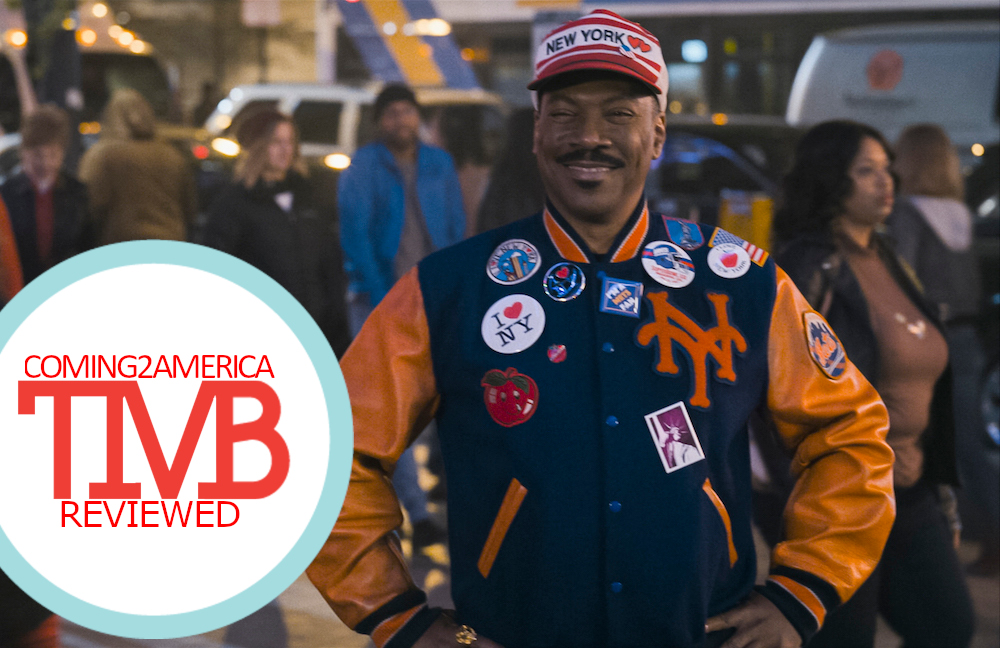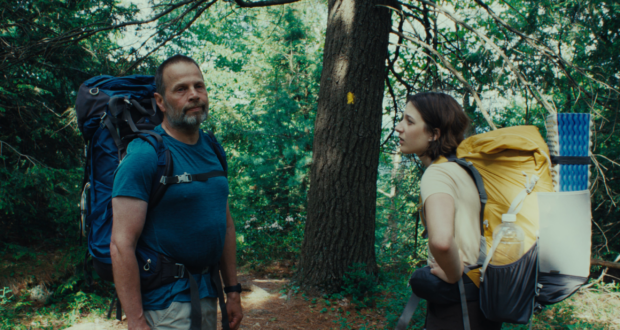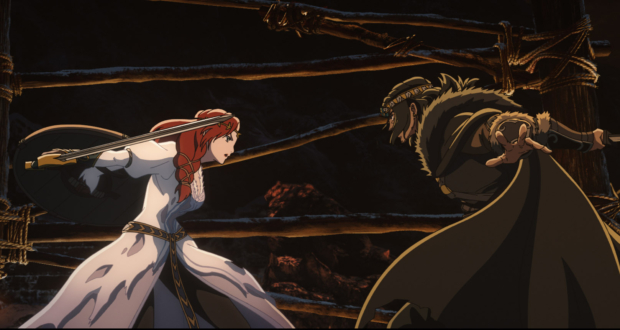Chris Spencer’s Back on the Strip sets out on a premise that could have been a unique exploration of ambition, identity, and self-discovery. Unfortunately, the film falls far short of its potential. The result is a disjointed and uninspired narrative that struggles to find its footing. With a cast boasting Wesley Snipes, Tiffany Haddish, and JB Smoove, you would expect a fun time at the movies. Back on The Strip disappoints on multiple fronts.
The central plot follows Merlin (Spence Moore II), a young aspiring magician who relocates to Las Vegas with dreams of making it big. The premise sounds intriguing enough, but the execution leaves much to be desired. The film takes a baffling turn when Merlin gets entangled with “The Chocolate Chips,” a group of black male strippers. This abrupt shift in focus marks the beginning of the movie’s downfall. The attempt to merge the worlds of magic and male stripping comes off as forced and awkward. The combination end up detracting from any meaningful exploration of Merlin’s character or his pursuit of fame.
The Bad:
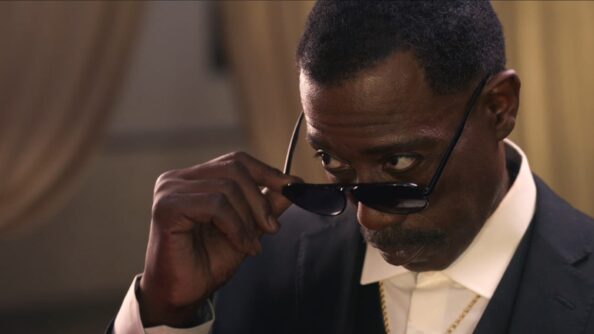
Spence Moore II’s portrayal of Merlin is hindered by a lack of character development. It’s also hindered by a script that fails to delve into his motivations and struggles. Merlin’s journey from a budding magician to a reluctant stripper lacks the emotional depth needed to resonate with the audience. Moore’s performance, while not entirely lackluster, is hampered by the limitations of the material he’s working with. The character’s decisions often defy logic, and his transformation feels rushed and unrealistic. Wesley Snipes, as Luther “Mr. Big,” brings a sense of charisma to the screen, but even his seasoned acting chops can’t salvage the poorly-written character. Luther is the stereotypical smooth-talking strip club owner with a heart of gold, a trope that feels dated and clichéd. Snipes deserved better material to sink his teeth into, as his presence is one of the few bright spots in an otherwise lackluster film.
Tiffany Haddish‘s Verna is relegated to a one-dimensional love interest role. Haddish’s comedic talents are wasted on a character that lacks agency and depth. The chemistry between Verna and Merlin feels forced, and their interactions do little to advance the narrative. The inclusion of JB Smoove as Amos is an honest attempt to inject humor into the film. THe problem is that Smoove’s comedic moments often fall flat due to the lack of a coherent tone. The film struggles to find the right balance between comedy and drama, resulting in jarring shifts that disrupt the overall flow. Smoove’s performance, while spirited, can’t salvage the poorly executed comedic elements that pepper the screenplay. Gary Owen‘s Xander adds another layer of eccentricity to the mix, but his character’s purpose remains unclear throughout the film. Owen’s comedic talents are evident, but his scenes feel disconnected from the main plot and fail to contribute meaningfully to the story’s progression.
The film’s pacing is erratic, with scenes dragging on unnecessarily while pivotal moments feel rushed. Overall the movie’s narrative lacks a cohesive structure. This makes it difficult for the audience to engage with the characters or invest in their journeys. The attempt to juxtapose the world of magic with male stripping is a creative misstep that only serves to muddy the waters further.
Furthermore, the film’s attempts at social commentary regarding black identity fall flat due to the lack of nuance and depth in the exploration of these themes. These potential avenues for meaningful exploration are glossed over in favor of awkward humor and contrived plot developments. Chris Spencer’s vision struggles to translate to the screen effectively in terms of direction. The film lacks a distinct visual style, and the directorial choices often feel uninspired. Scenes that could have been visually captivating are shot in a pedestrian manner, diminishing their impact.
The Good:
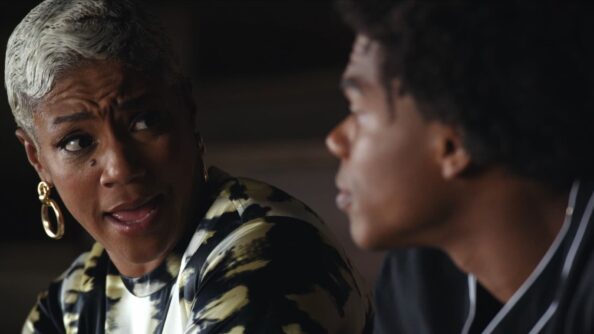
Easily my favorite aspect about this whole movie is that it was pretty obvious that the cast had a ton of fun making this. Even though it wasn’t an enjoyable film for me to sit down and watch, it was quite nice to see this cast come together and have the time of their lives making a movie that they were proud of. There are worse comedies out there than this one for sure.
Overall:
Back on the Strip is a disappointing endeavor that fails to capitalize on its intriguing premise and talented cast. The lack of character development, disjointed narrative, and tonal inconsistencies hinder any potential for emotional resonance or thought-provoking commentary. While the cast members bring their best efforts to the table, they are let down by a lackluster script and direction that fails to elevate the material. This film is a missed opportunity that ultimately leaves both its characters and audience unsatisfied.
-
Acting - 6/10
6/10
-
Cinematography/Visual Effects - 5/10
5/10
-
Plot/Screenplay - 3/10
3/10
-
Setting/Theme - 5/10
5/10
-
Watchability - 4/10
4/10
-
Rewatchability - 2/10
2/10





